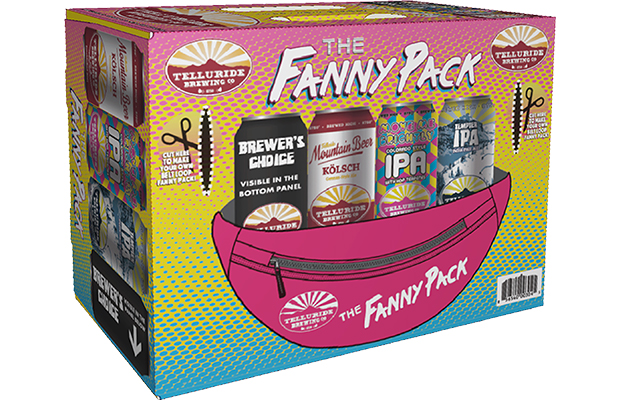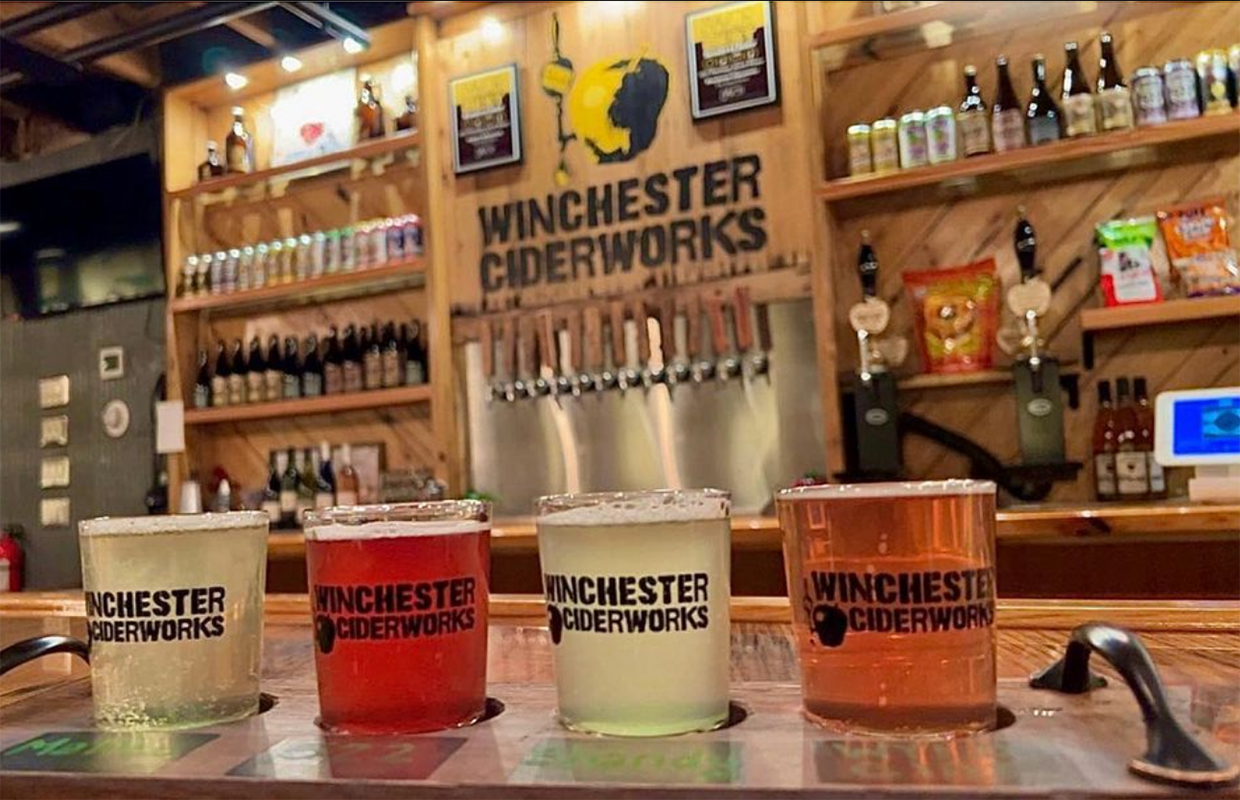
Your brewery does not just create a beverage; it’s the outward face of your brand’s culture, giving consumers an experience, while helping create and maintain a thriving industry that demands strategic prowess in sales management. Crafting strong sales strategies requires a blend of market insight, brand storytelling, and relationship building from management and down. From navigating distribution channels to fostering customer loyalty, the steps to creating a robust sales team are important to develop early or adjust when stepping into a new situation.
For Saucy Brew Work’s Mark Beaver, the last couple of months to start 2024 the Cleveland-based brewery has already changed how they looked at sales. Having sales managers just show up to an account and not do it in a meaningful way has been problematic and adjusting the goal of what a visit is can lead to big gains.
“One thing that we have done is taken that a step further, and having our salespeople be more than just that person popping in and giving people stickers or drop off a card, but to really identifying key accounts that matter and work to build a relationship with those buyers, especially in grocery,” Beaver said, who is the VP of Sales for the brewery.
But where does that start? It comes to having a key idea in targeting recruits and hiring the right fit for your brand.
It’s an extremely smart thing to start at by defining, explicitly, what will be expected Indeed Brewing CBO Ryan Bandy told Brewer.
“What does it mean to be a salesperson at Indeed? What type of people do we want to hire at Indeed,” he said should be some first questions a manager needs to ask themselves before starting. “Giving some real thought about core values — and not the cheesy, almost cliche-y way — but in a way that gives you a roadmap to answer the question of ‘Should we hire this person? Should we promote this person?’
“I rolled my eyes when we started talking about core values, but it was one of the best things we’ve done in the 12-year history of this company.”
Sitting down and determining these factors, Bandy said, helps clear up who the brand is as they recruit and hire for the company.
“It’s not a value judgment on the person,” he pointed out. “I have many dear friends that I love and spend a lot of time with but aren’t the type of person we’d hire at Indeed.
“We don’t talk about them publicly much, cause there are thousands of awesome values to identify with, but our values are: Think Different; Be Committed; Do Good.”
Seth Talmon, the Sales Director at Lawson’s Finest Liquids said they start from a space of inclusivity
“All are welcome and (we) promote hiring based on alignment with our core values,” Talmon said. “Additionally, we consider our approach methodical and spend the time getting to know the person and what motivates them as a sales professional.”
Continuing past the hire, creating expectations of the role is crucial toward success, Bandy added.
“Especially the responsibility and accountability part,” he said. “I cannot express how important directly defining those things are. We had a loose responsibility structure — which is probably common for entrepreneurial companies — for a while and we should have defined that stuff more aggressively earlier.
“Being able to be comfortable talking about accountability was really important because it allows you to create a team that wants to be accountable for things. And then that includes their account list, their territory, as well as their goals, expectations, and who they report to. I actually like to build that up with our team so they are in on the goal-building process and have more buy-in.”
Beaver is currently finding success in new strategies for Saucy and has seen expectations soar in his time there.
“I don’t want anybody in my sales team not knowing what their priorities are,” he said. “When you have 10-15 different SKUs to sell, that can very easily happen and I’ve been through that in the past. If you ask any of those three people what our priorities are: it’s building Juicy ASAP to a foundational state player; drive our variety pack into as many retailers as we possibly can; and then chase our Imperial IPA behind that while supporting the seasonals and LTOs. They will be able to recite that from Day 1.”
The switch has seemed to be a welcomed one and creating a new way to reward the hard work has also been key for Saucy, Beaver noted.
The bonus structure before was built on the total volume goals, which is why Saucy’s LTOs were more of a priority.
“You can pick up quick volume,” he said of those limited releases. “We adjusted that to a quarterly total, which includes a volume piece, but also a targeted distribution piece in growing our core brand.”
There is also an activity-based portion of those goals and bonuses which includes getting into marketing, doing demos at grocery stores, or having tap takeovers while getting beer features that help in penetrating accounts. But, he said, there are weekly goals that are set: sales reps need to see a certain amount of accounts each week, and they need to report to wholesalers on what is coming down the pipeline while looking at their own inventory to make sure that they have enough for upcoming programs or look for pinch points in a product that’s running long.
“So those quarterly goals wrap up into weekly targets,” Beaver said.
Bandy said Indeed does talk a lot about Points of Distribution and Rate of Sale.
“But even before that is this fact, at least in our industry: showing up is 90% of the battle,” he said. He said early in someone’s employment they will use Stops or Account Visits as KPIs because it’s important but then the POD and ROS are the drivers that, when multiplied, create sales.
“That could be simple points — accounts buying anything — or PODs within the accounts,” he said. “And then the Rate of Sale has a lot of input, but things like placement on the shelf, tap handle placement in the account, whether you’re on sale or on Happy Hour, and such.
“When a new brand comes out, or if we’re doing a push, we focus on getting X amount of PODs in X days. And then if we’re trying to grow a brand that’s out there, we talk about ROS.
“At the end of the day, the chance for growth is when you sell more beer or make more money, so let’s look at the levers we can pull on that and get to work.”
But sometimes there is still the aspect of dealing with performance issues promptly.
Bandy said it all goes back to valuing honesty and transparency in the accountability and responsibility conversations you have at the start of a hire.
“Being able to build up a lot of those goals and expectations with the salesperson at conversations — we try to do them quarterly — about their position is important. In the sales world, in my experience, performance issues can take a few forms, but most of them either have to do with effort and/or follow-through.”
The effort part, he said, can be derived from the ‘showing up’ piece.
“A couple issues I’ve seen from that world, are they show up to the same 20 accounts every week or they don’t show up in the way that the account needs,” he said. “So some accounts need you to show up at 3 p.m. and drink a beer with the buyers, so a lot of salespeople will want to show up to ONLY those accounts. But some accounts need you to show up at a corporate office at 9 a.m., show up and help merchandisers, or show up quarterly on a digital call with a professional presentation.
“Clarifying their territory responsibilities and expectations, and ensuring they show up for their accounts, usually solves this stuff.”
Follow-through, Bandy added can be the other 10%
“The best salespeople we’ve had have awesome follow-through,” he said. “In a practical sense, that looks like organization, hustle, honesty, and a care towards commitment and ‘doing what you said you’d do.’
“I’ve always said, probably since I heard it from one of those old-school beer guys that had a bit of a knowledge, ‘Under-promise, over-deliver.’ If a salesperson is doing those two things — which is obviously harder said than done — and their numbers are still not great, you might need a better wholesaler or branding. But if your salesperson outwardly blames anything on those two things, I wouldn’t trust them.”
Beaver said, sometimes a hire might not just be in the right situation.
“If you can’t sell, what is it that might work for you,” he said. “Frankly, I really hope I don’t have to get rid of anybody. For any other reason outside of theft or some extreme reason, I would hope that maybe sales isn’t the right fit and we can find something else in our team that makes more sense.
“Maybe they want to be in brewing, maybe they want to get to the operation side of the world or logistics. I think that we owe it to them to try to identify that.
“So it’s not so much of a three strikes, you’re out. But, maybe this isn’t quite the right fit for you. Let’s find the right fit for you and try to grow you that way.”
Indeed looks to make sure managers are engaged in super frequent one-on-ones with each person on their team as well as quarterly conversations with each team member. Adding an HR Director has been vital as well.
READ MORE: Creating Sales & Marketing Cohesiveness Between Wholesaler & Your Brand
“Having an explicit HR Director and having clear expectations for managers are super important,” Bandy said. “The frequent one-on-ones and quarterlies are great infrastructure for managers and employees to talk about things like motivations, expectations, accountability, and ultimately the wider conversation of ‘good or bad’ work at their job.
“Some of that disciplinary action can actually look like, ‘Well, we both said that showing up is a really important part of the job, and it looks like you’re not showing up, so do you want to start showing up, or should we look at separating?’ If it’s the follow-through problem, there are some policies and procedures we’ve implemented to help organize and structure tasks, as sometimes that problem is systematic. But sometimes it’s just a matter of clear expectations.”
Beaver is firmly a believer that your team’s talent and growth is a direct reflection of leadership.
“For me, it’s very much about getting these guys to the next level,” he said. “Having them go from sales managers to category captains is important. And we’re well on the way to that.”
Make sure your directors and managers are the real deal, Bandy added.
“There is no quicker demoralization for good salespeople than a disingenuous manager or director,” he said. “Don’t hire people for those roles if you’re not 100% sure they’d make great representations of the company. Make sure they are people who love accountability and responsibility — if there is something off at the company, they want to help fix it — and that they like the idea of managing people, and that they are comfortable being a part of the decision-makers.”





